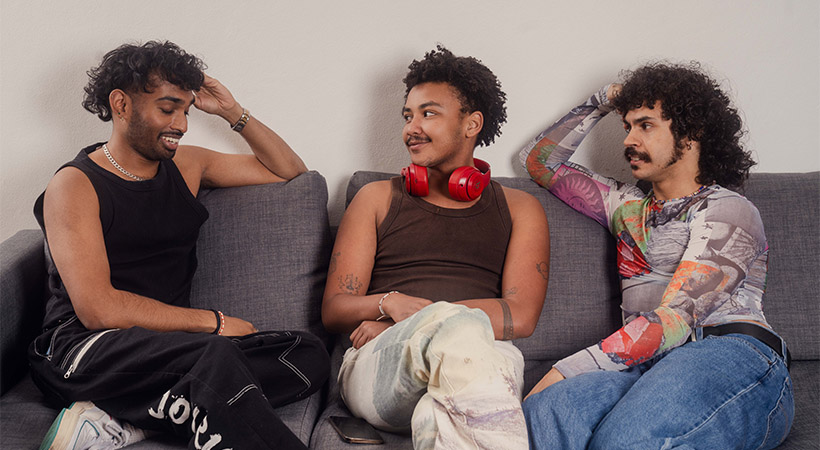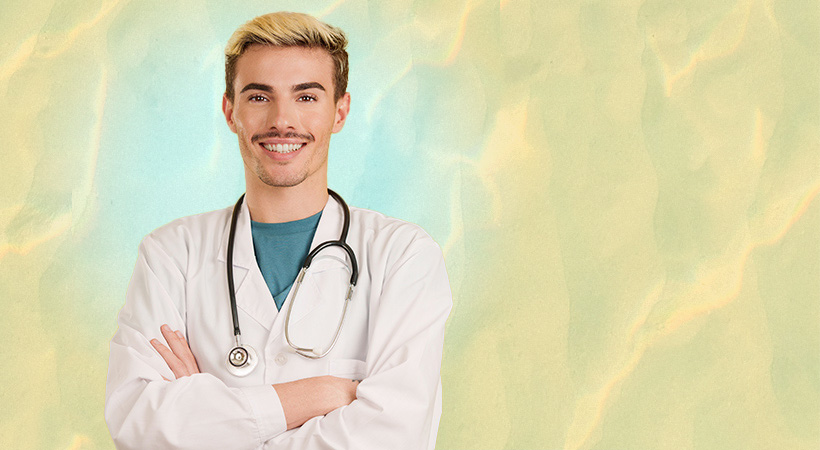Finding a therapist who understands and supports you can be a meaningful part of your mental health. It can take time and effort, but it’s worth it when you find a gay-friendly therapist who suits you!
It’s important to find a therapist you trust — and who shares some common ground with you. This is why a lot of gay and bi+ guys seek out a gay-friendly therapist. Your gender, sexuality and relationships are all big parts of your mental health, so there are benefits to finding a therapist who understands these parts of your experience.
It’s about finding someone who ‘gets it’; someone who, even if they’re not part of the LGBTQ community, can understand the experience of being an LGBTQ person. It can also save you a lot of time. Nobody wants to spend their precious hour of therapy explaining tops and bottoms or the significance of coming out to their therapist.
Things to consider before choosing a gay-friendly therapist
- Cultural background — you may find it important to have a therapist who understands your cultural background and how this interacts with your queerness. A therapist with a culturally similar background may understand your family dynamics better and be more sensitive to confidentiality and perceptions towards mental health.
- Accessibility — if you are living with a disability, it can be helpful to find a therapist experienced in having clients with a disability. For instance, some therapists may have expertise with autistic or ADHD clients. If you have a physical disability and would like in-person therapy, the practice will also need the necessary accessibility requirements for you.
- Gender — you may want to consider the gender of your therapist. If you are trans or gender diverse, it can be especially important that your therapist knows how to use your correct pronouns and understands the barriers TGD folk face.
- Location — decide whether you would prefer to have appointments online or in person. If you live in a rural area or have trouble opening up to people in person, consider online appointments. If you don’t have a private space at home, consider in-person appointments.
- Cost — therapy can be expensive. Many therapists offer rebates and low-cost options, but this will depend on the practice and practitioner. If you’re eligible for Medicare, you can claim up to 10 mental health sessions a year. There are also some schemes that offer free and low-cost therapy to LGBTQ young people. Consider your options for paying for therapy and look into what rebates you are eligible for before choosing a therapist.
- Your mental health needs — it is helpful to understand why you are going to therapy before you choose a therapist. Different therapists specialise in different areas of mental health such as anxiety, depression, grief, gender, sexuality, anger management and family. They also utilise different methods such as Cognitive Behavioural Therapy (CBT). It could be useful to choose a therapist who specialises in the areas and methods you want to work on.
Now that you have an idea of what you want out of therapy; here are our top tips for finding the right gay-friendly therapist for you.
Ask people you know
If you’re comfortable discussing your mental health with friends (a great idea), word of mouth can be a fantastic source of recommendations. Talking to people with first-hand experience of a therapist can give you an idea of how they work and whether they’ll be a good fit for you. You can also get some inside information on what they’re like in terms of approachability, manner and personality, which you won’t always get from their professional profile.

Check with mental health and LGBTQ community organisations
There are a number of organisations (both national and state-based) focused on health for the LGBTQ community. Many of these groups offer or partner with counselling services and will be able to help you find a gay-friendly therapist to suits your needs. Check out our full support services article, some of which are listed below:
• QLife (national)
• LGBTIQ+ Health Australia (national)
• Beyond Blue (national)
• ReachOut (national)
• Meridian (ACT)
• WAAC (WA)
• ACON (NSW)
• QC (Qld)
• Thorne Harbour Health (Vic)
• Thorne Harbour Health (SA)
• Working It Out (TAS)
• NTAHC (NT)

Ask your gay-friendly doctor
One of the best things about having a gay-friendly doctor is that they’ll often have great connections within the medical community who also specialise in LGBTQ clients. Your doctor may be able to recommend a gay-friendly therapist who can help with your mental health and also have experience with discussing gender and sexuality.
Explore your options online
There are plenty of websites dedicated to finding therapists. For example, Australian Psychological Society, Psychotherapy and Counselling Federation of Australia, and Psychology Today. Many of these have filters for location, cost, delivery (in-person or online) and specialisations, so you can find someone suited to your needs.
You could also check out or pop a question in some queer-friendly Facebook groups — and get some advice from queer peers near you.

Try out a few different therapists
Expect that it might take a few tries to find a mental health professional who you really click with, especially if you’ve never been to counselling before.
Therapy can be challenging, so it can be tricky to tell when it’s hard work and when it’s just not working for you. There are a few clear signs that you may need to look for a different therapist, though:
- They do all the talking
- You don’t feel like they’re listening to you
- You frequently have to remind them of things you’ve said before
- They rarely ask you questions
- You feel judged, shamed or belittled
- You don’t trust them
- They try to force a moral or religious viewpoint onto you
- You feel like they don’t quite ‘get it’ when you talk about your experience
Any of these are signs that your therapist probably isn’t right for you. Tell them so (respectfully) and talk to your doctor about finding someone who’s better suited to your needs.
Finding the right therapist can take some time. Trust your instincts and keep looking until you find someone who feels right for you. Keep an open mind — remember that progress can be gradual, and therapy is something you do with a therapist; not something that’s done to you.
The most important thing is to find a gay-friendly therapist who can support you as a gay or bi+ guy and help you find the best way to look after your mental health, now and in the future.